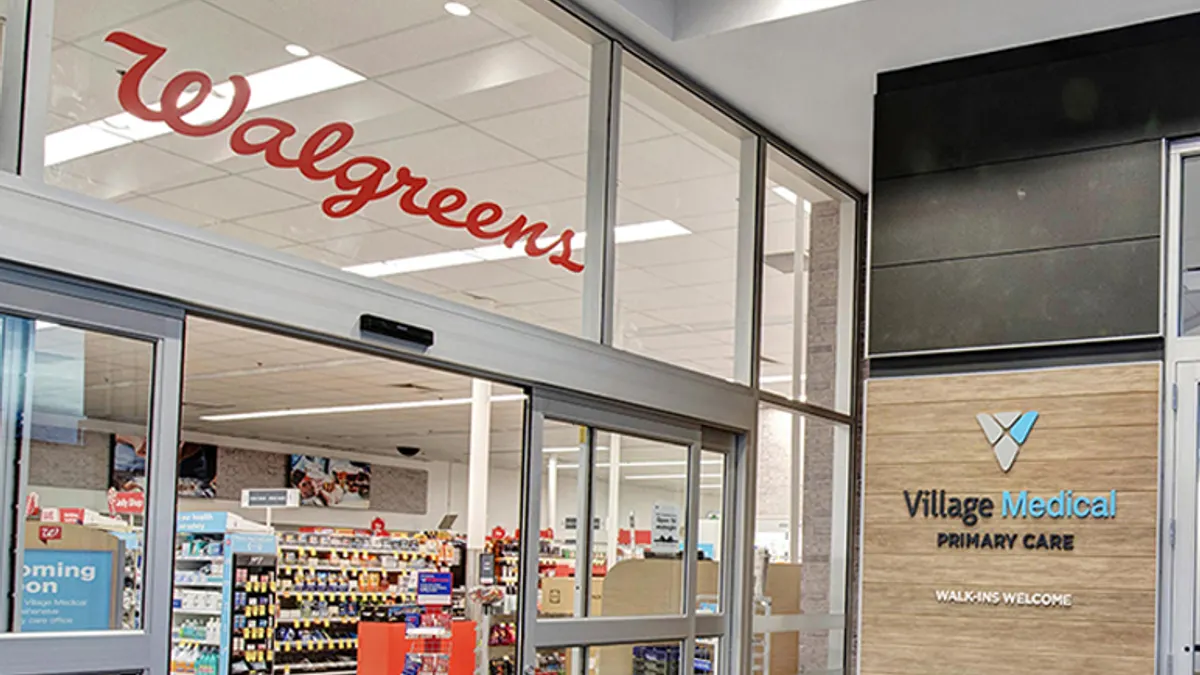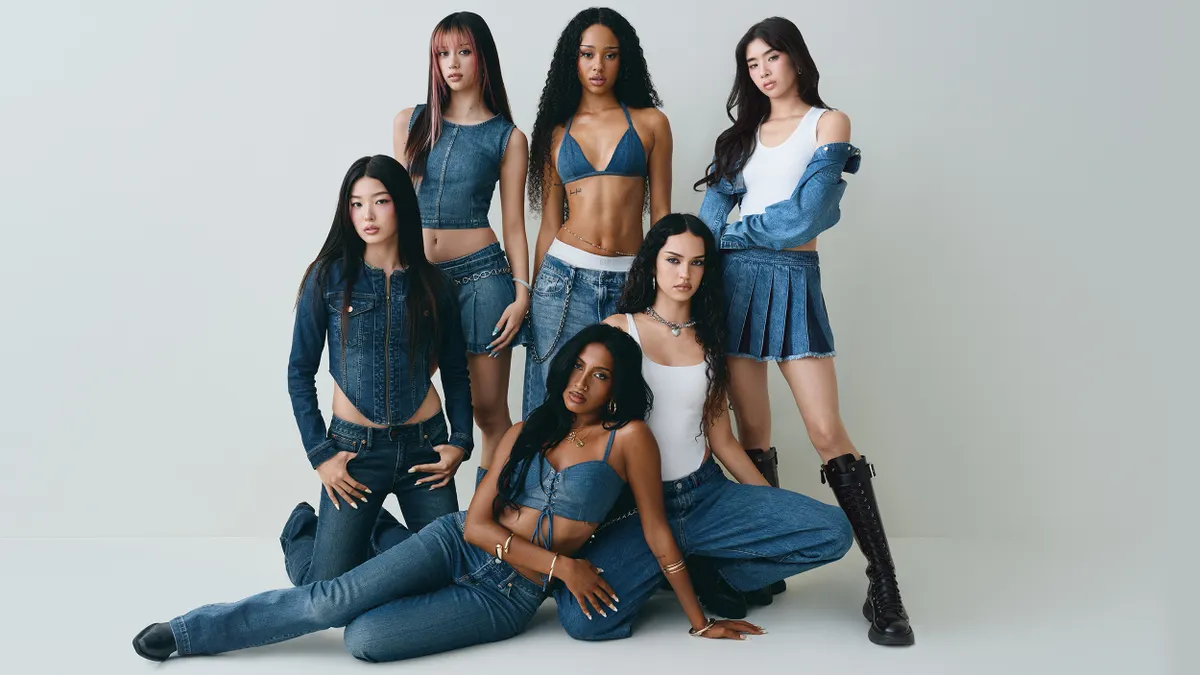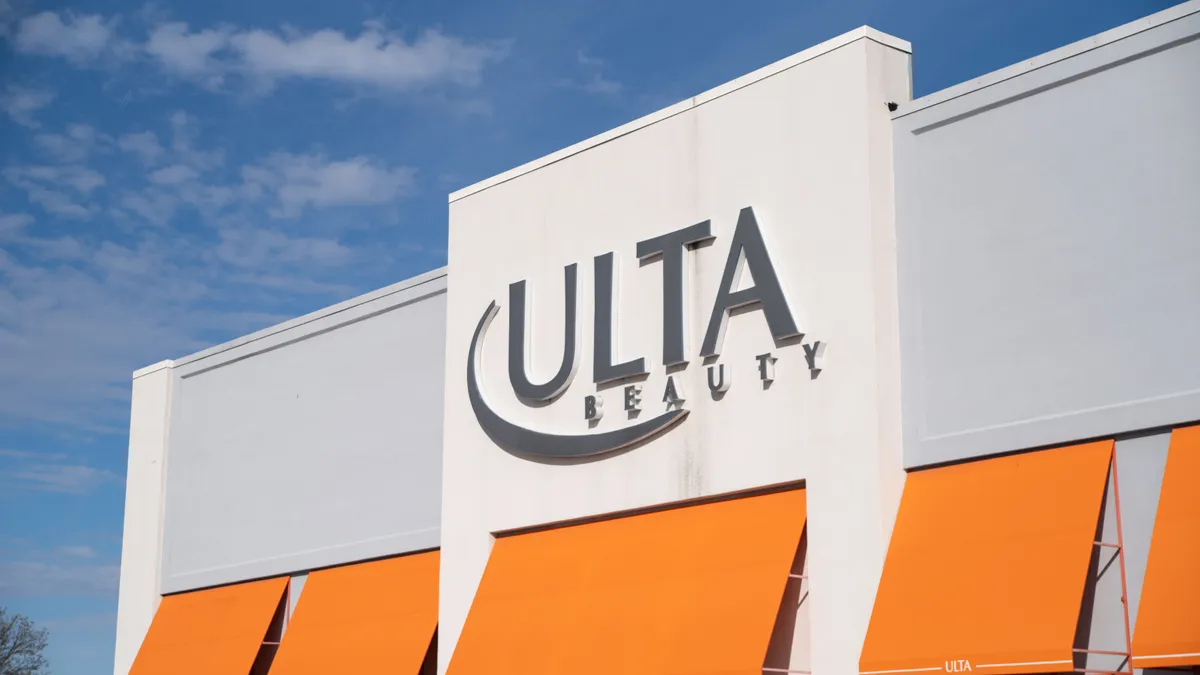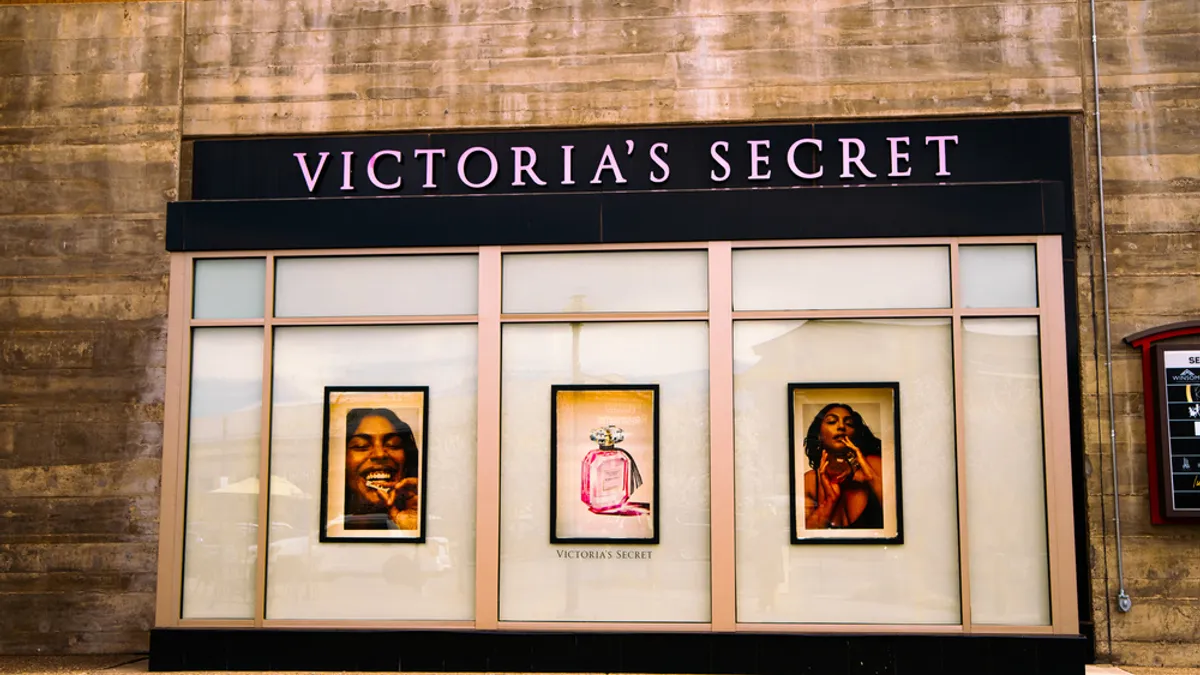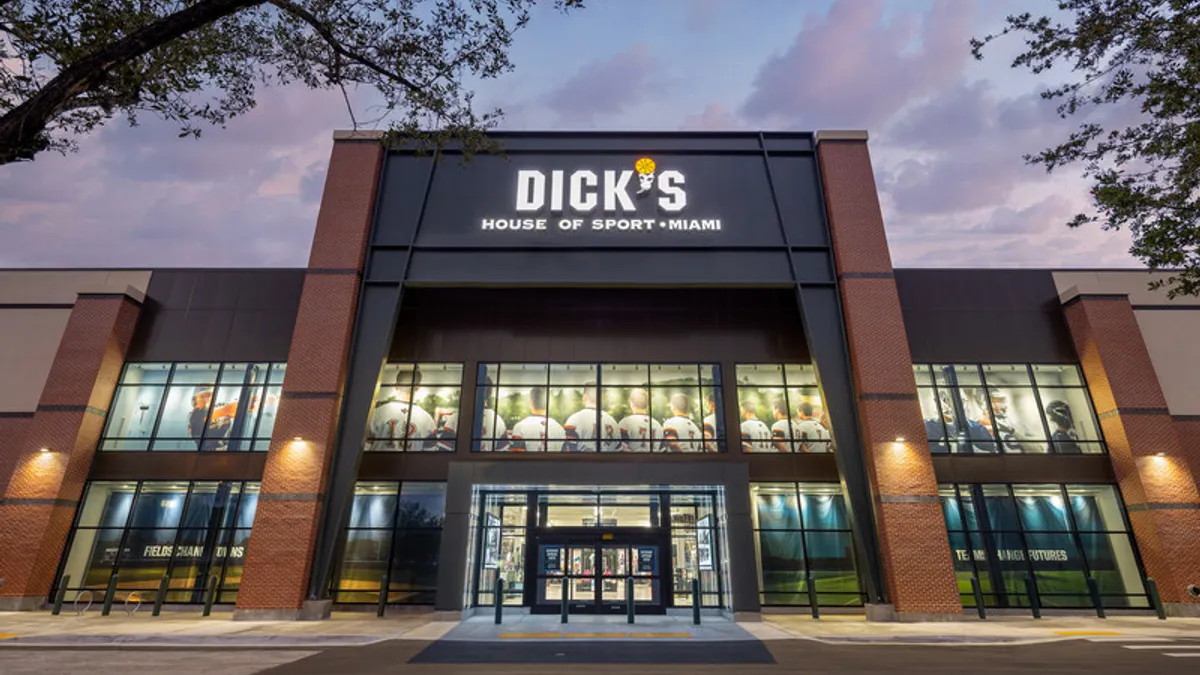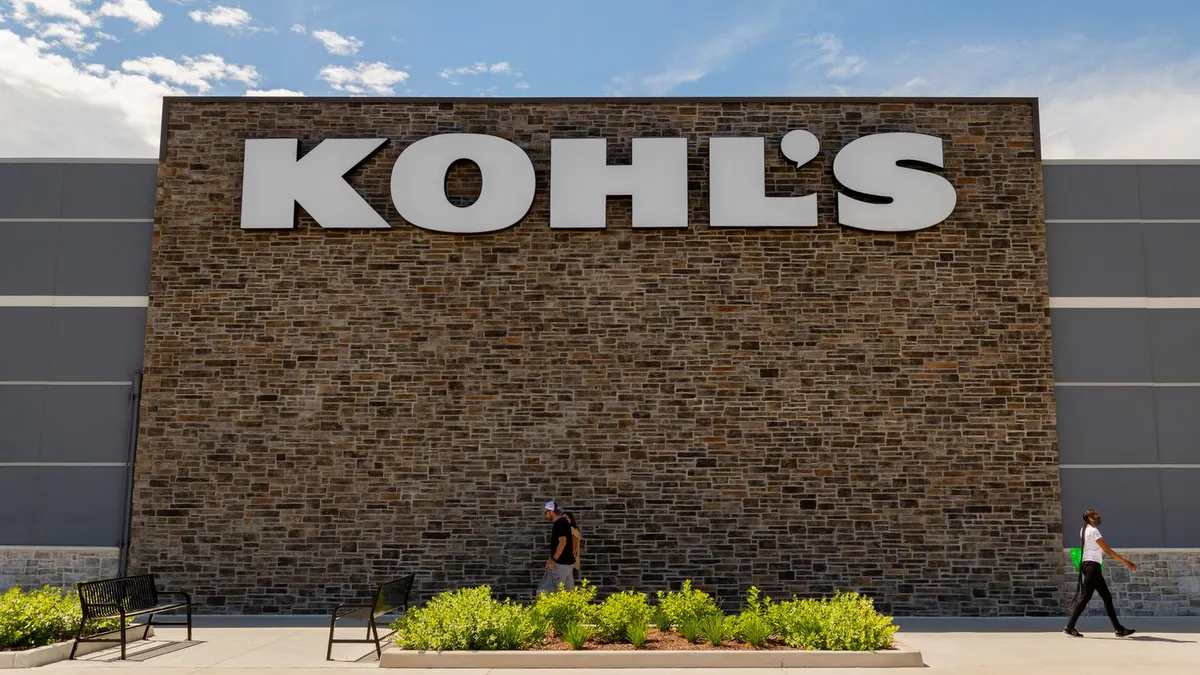As the candidates for president of the United States emerge from the second of three debates, retailers are getting a taste for how Donald Trump and Hillary Clinton plan to run the economy — and the differences are stark.
While voters begin to send in early votes, retailers are already seeing the side effects: Analysts say the candidates' volatile rhetoric has made the election a bigger-than-usual distraction for consumers this holiday season. But at the end of the day, experts agree people are still going to spend money this holiday season, with the NRF predicting 3.6% growth in retail sales during November and December.
What could have a longer term impact on retail are the respective policies of each presidential candidate. Trump and Clinton's differing stances on three policy issues critical to retail — trade, tax reform, and labor — could help define the future of the sector, depending on which way the electorate votes.
Retail Dive sought interviews with representatives of both campaigns; neither responded to multiple requests for more details on how their policies could impact retail. Even so, the public statements the candidates have made in the election so far, as well as input from analysts and trade associations, gives us insight into how each administration could reshape the future of retail.
Trade rhetoric 'alarming' to retailers
Passing the Trans-Pacific Partnership is a top priority for the retail industry, but both presidential candidates hope to do the opposite — stirring fears among retailers that trade policy under a new administration will be much more protectionist.
As talk of renegotiating the TPP has escalated during election season, retail trade associations such as the National Retail Federation and the Retail Industry Leaders Association have advocated the TPP should be passed as it is and other trade deals be left alone.
The TPP, which outlines a trade pact that would lower tariffs between the U.S. and 11 other nations trading in the Pacific Rim, has been a major undertaking of President Barack Obama's presidency. The deal is particularly important for apparel retailers that construct manufacturing plants or source materials in the region.
Nike, which is among the retailers that would stand to benefit from TPP, has been particularly vocal in advocating for the deal. Nike says the TPP would help return 10,000 jobs to the U.S. through Nike alone, if you factor in jobs brought back by suppliers and other related businesses.
But if Donald Trump has been clear about anything in his campaign, it’s his distaste for U.S. trade deals. Bluntly, he has called the TPP “rape” and even slammed the North American Free Trade Agreement (NAFTA), calling it “one of the worst things that ever happened to the manufacturing industry.” Trump has not shed much light on what renegotiated trade deals might look like under his administration.
Clinton, on the other hand, has flip-flopped on the trade issue. While Secretary of State in 2012, she called the TPP the “gold standard.” But during the election, she has advocated for renegotiating the TPP and keeping current trade deals in place.
The trade rhetoric from both candidates is “alarming” for retailers, David French, senior vice president for government relations at the NRF, told Retail Dive. Both candidates are poised to make it extremely difficult to pass TPP — or even renegotiate its terms.
"Because of politics of the 2016 election cycle, it is likely that the agreement might be scrapped and we might have to start back from square one," he said. "It affects trade throughout a large portion of South East Asia that is part of the retail supply chain. It also has an impact on our strategic and national security relations in the nation and potentially even stability in the region in the long run."
Retailers are concerned they could see higher tariffs after the election. In a September report produced by GT Nexus, a cloud-based global supply chain management platform, the firm surveyed 250 senior-level retail executives and found that 46% of retail executives expect to be impacted by tariffs and protectionist measures after the election. About 44% expect the cost of goods to rise, 22% expect delays and disruptions, 20% expect more red tape and 17% anticipate greater challenges in procuring materials. And when asked how their company would deal with increased prices on goods, 36% said they would pass the cost on to the consumer.
For retailers competing on price, that's a big problem, according to Guy Courtin, vice president of industry and solution strategy for retail and fashion at GT Nexus.
Retailers with a strong dependence on overseas sourcing, such as home goods retailers and apparel retailers, could be hit hardest by more protectionist measures, he told Retail Dive. According to the survey, 68% of retailers said they don't have programs in place to flexibly address incoming trade risk.
“Imagine if Home Depot now has to pay a 20 or 30% tariff. What will that do to sourcing and pricing?” he said. “If you look at places in fashion that source materials like cotton overseas — what happens if those guys get hit by the same thing? Maybe they have to change manufacturing processes.”
Retailers are hoping they can work with the next president on trade, regardless of the outcome of the election.
“Election season is a crazy time,” Brian Dodge, executive vice president of communications & strategic initiatives at the Retail Industry Leaders Association, told Retail Dive. "We are hoping that once the president is seated and has begun focusing on governing and has a cool head, we will be able to make the case for why TPP is really essential to economic growth in the United States."
On tax reform, retailers rally for reductions
Retail associations like the NRF and RILA have long lobbied for a reduction in the corporate tax rate, which sits at 35% — and places retailers among the highest-taxed industry groups in the world.
Four years ago, when Mitt Romney challenged President Barack Obama, comprehensive tax reform was the top priority for retailers, NRF President and CEO Matthew Shay wrote in a blog post. Earlier this month, he said that remains the case.
The NRF's French elaborated on why a tax reduction could have tremendous benefits for the industry: “We know that if business tax rates can be brought down under 30%, a lot of investments start flowing into the United States, a lot of economic activity starts,” he said. “It will be good for consumer spending. It would be good for retail investment and job creation."
RILA has also advocated for a broadening of the tax base, according to Dodge. “Let’s do away with the special interest reductions that some industries get that others do not, and let’s pursue comprehensive tax reform on the corporate level as well as individual,” he said.
Trump's tax plans may be the friendliest to industry: He plans to cut the corporate tax rate down to 15% as a part of a scheme to "bring our jobs back." Clinton has not said whether she supports President Obama’s plan to cut the corporate tax rate to 28%. Her tax plan also includes a “business tax reform,” which would create a one-time tax on $2 trillion in offshore funds to pay for $275 million in infrastructure spending, according to The Wall Street Journal.
Both candidates have said that they intend to focus on infrastructure spending early on after the election, which French said will quickly become a focus on tax reform. That means there is a good opportunity for tax reform to pass early in the next congress, he said. “I think both Clinton and Trump probably would be receptive to that deal, although the specifics of that deal may vary widely depending on who is elected,” French said.
As a part of tax reform, many retailers are also looking to the next administration to consider e-fairness legislation, which would collect sales taxes from online retailers without brick and mortar locations. The NRF has previously stated that the sales tax system "unfairly favors online retailers — who are not required to collect sales tax on most sales."
In a letter to the editor of The Wall Street Journal published earlier this year, the NRF's Matthew Shay wrote: “By allowing online sellers to play by different rules, Congress is hurting local retailers trying to compete against the unfair, built-in price advantage of not collecting sales tax.”
Clinton said she would support allowing cities and states to collect taxes for online purchases, but that she would not mandate it, Reuters has reported. Trump has hinted that he thinks online sellers like Amazon should be taxed.
It’s not clear yet which candidate has the tax reform plan most favorable to retailers, according to Dodge, adding that the next makeup of Congress will strongly influence such policies.
On workforce policy, retailers want less regulation
Labor and workforce policies are critically important to the retail industry. The sector is the largest private employer in the country, supplying about 42 million jobs, according to the NRF. But this is an area where the two candidates do not agree, partly due to ideological differences in the political parties.
Broadly speaking, Clinton would likely continue and build on Obama's workforce regulations, while Trump has suggested he would dismantle them.
The Obama administration has had “a very ambitious program to impose costly new regulations on employers,” the NRF's French said, and the burden of those regulations has fallen disproportionately on the retail sector because it is such a significant employer in the U.S. economy.
The federal minimum wage is one issue that both candidates have spoken about fairly regularly. Both would raise it — Trump to $10 an hour and Clinton to $12, although both have said cities and states should decide whether it should be even higher.
Neither the NRF or RILA have a position on the minimum wage, but GT Nexus analyst Courtin said most retailers would not favor a dramatic raise. “From a retailer’s perspective, [minimum wages] are variable costs and if they can keep them low, they are happier,” he said.
Retailers are also particularly concerned with an overtime rule passed by Obama that originally was set to go into effect on Dec. 1. The regulation would have extended overtime benefits to employees making up to $47,476 in annual salary, with the current qualifying limit capped at $23,660.
An effort to block the regulation was passed by the House of Representatives in late September and will be considered by the Senate later this year. Many Republicans have come out against the overtime rule, with House speaker Paul Ryan calling it an “absolute disaster.”
Clinton has voiced her support for the rule, while Trump has hinted otherwise. He told Circa: “We have to address the issues of over-taxation and over-regulation and the lack of access to credit markets to get our small-business owners thriving again. Rolling back the overtime regulation is just one example of the many regulations that need to be addressed to do that. We would love to see a delay or a carve-out of sorts for our small business owners.”
The NRF and RILA have both signaled that they stand in opposition to the overtime rule, which would raise labor costs for retailers.
Overall, policy experts say that Clinton represents an extension of Obama's legacy on workforce issues — and Trump comes as a break from the past.
“Hillary Clinton is likely to continue [Obama's workforce] policies and may even expand enforcement, like the notion of joint employer, in ways that could be complicated for retailers to deal with,” French said. “I don’t think I see Donald Trump, his administration, having nearly an ambitious agenda in that direction.”
The bottom line
For the retail sector, there doesn't appear to be a clear-cut winner between Trump and Clinton. While Trump has disparaged trade deals important to the industry, Clinton seems likely to increase regulations on business.
In the end, neither candidate will take a seat in the Oval Office with high favorability ratings. A September poll from The Washington Post found that 62% of Americans don't think Trump is "qualified to serve as president." But 39% don't think Clinton is fit either.
Neither the NRF nor RILA endorse presidential candidates, and both have stated they will work with whomever is chosen to lead the country.
"Our job is to figure out how to work with whoever is elected in the government we have to advance the interests in the retail community," the NRF's French said, admitting that he is "a little concerned about having a president who is fundamentally unpopular on day one."
Whether it’s Trump or Clinton, retailers want to know who they're getting so they can plan for the future. “Once these candidates get into the White House, what will they really do between rhetoric and reality?" said GT Nexus' Courtin. "I think a lot of the unknown is what [retailers] are really frustrated about.”






